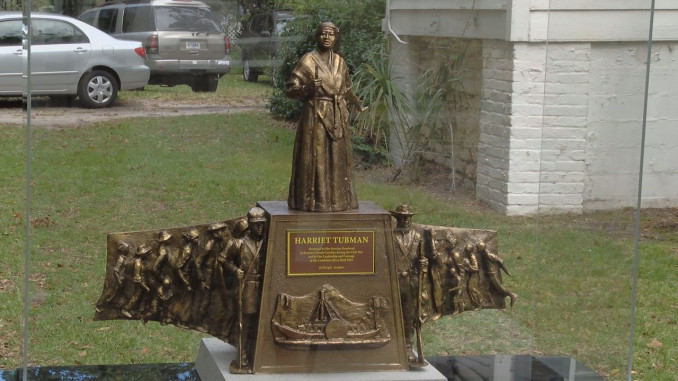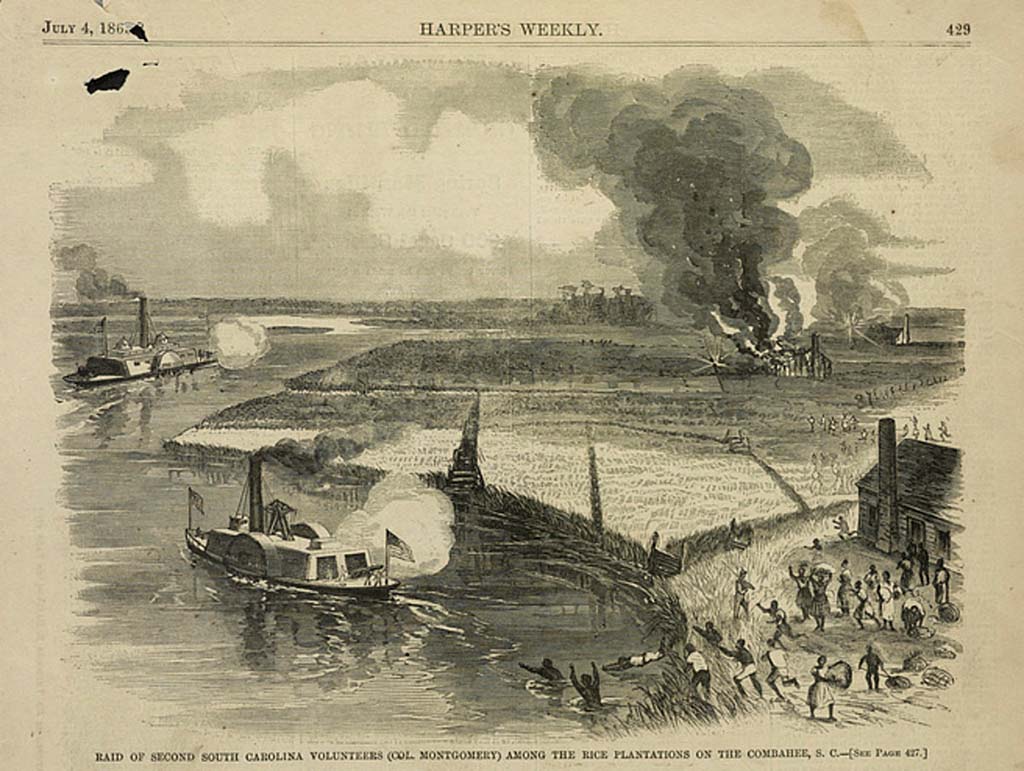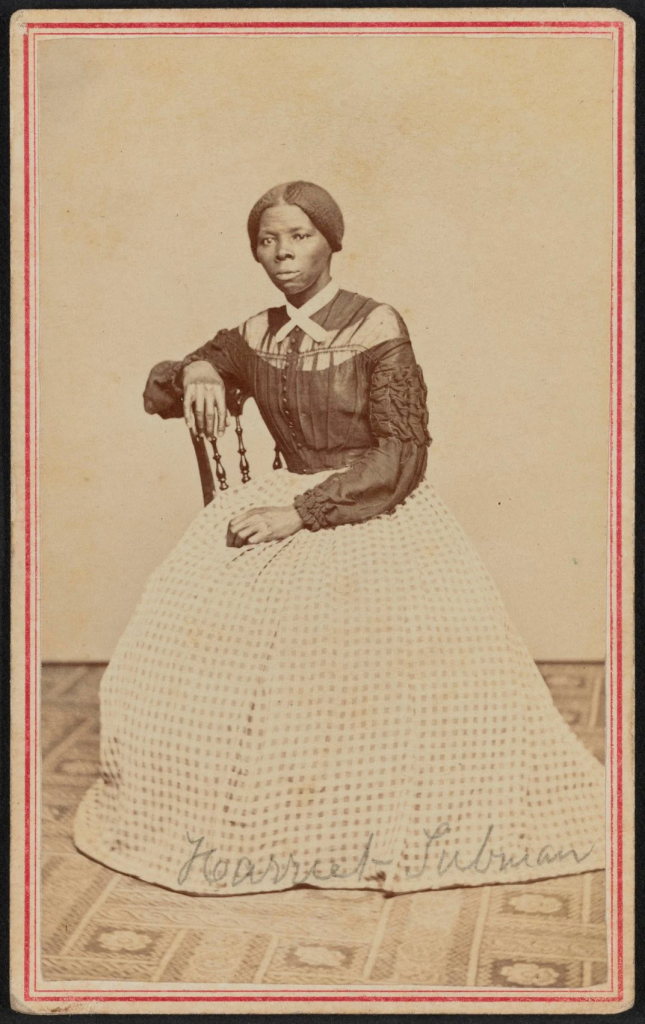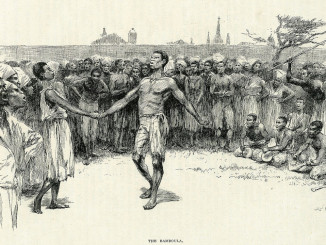
On June 2, 1863, during the U.S. Civil War, two Union Army gunships (the Harriet A. Weed and the John Adams — both converted ferryboats) carrying 150 soldiers proceeded up the Combahee River, about twenty miles south of Charleston, in the heart of South Carolina’s lowland rice region. Guided by a woman with nearly 14 years experience in secretive travel, intelligence gathering, and slave liberation, the boats sailed up the river. They engaged and scattered a few Confederate outposts before pulling up alongside the plantations on the river. There, the troops disembarked, dispersing Confederate soldiers. They burned and destroyed plantations, their infrastructure, and their commodities, and freed and took on board at least 700 enslaved people from the surrounding plantations.
That woman was Harriet Tubman, who had been born into slavery and became a conductor on the Underground Railroad, and was 40 years old at this time. In the nearly 14 years before the Combahee Raid, she made 13 trips to the South. Initially these trips were to save family members, but in the end, they helped liberate at least 70 Black people from slavery.

The Union soldiers were the 2nd South Carolina Infantry, an all-Black regiment formed by former slaves from the plantations south of Charleston, who were liberated by Union troops in the early months of the war. They were led by Colonel James Montgomery, a white officer who had fought in Kansas in the 1850s, when he and other freedom fighters like John Brown had tried to make Kansas a state free of slavery. At the time, they and other white abolitionists picked up arms and conducted guerrilla style civil war against the slave plantation holders, giving the period and the state the name “Bleeding Kansas.”
In 1862, Tubman joined the Union army and was assigned as a teacher in the Sea Islands of South Carolina. It was there that she played a major role in the creation and execution of the Combahee River Raid. She used her networks of spies and communications built up over more than a decade to map out not only which plantations were easily accessible by boat for liberation, but also the location of Confederate mines and outposts along the river. Although Montgomery led the fighting, Tubman was clearly his co-commander, watching the combat from the boat and helping in the rescue operation that took place. A newspaper description from after the raid described her heroically as “the black woman who led the raid and under whose inspiration it was originated and conducted.”

The Combahee River Raid stands out historically for a number of reasons. Although not what she is most famous for, it is likely Tubman’s most significant single accomplishment, as she freed far more people in one day than she had managed to free in over a decade. She had dedicated years of her life to Black freedom, and was able to accomplish that goal on a larger scale than ever before as part of the epic conflict that struck at the larger structures of the slave system.
It also showed the spirit and skills of Black troops. These troops were not only eager to fight, they were willing to sacrifice themselves for the larger cause of freedom for those still enslaved. This was shown once again only one month later, when the now more widely known Massachusetts 54th, also composed of all Black infantrymen, lost nearly half their soldiers in a heroic attack on the well-defended Fort Wagner only a few miles away.
Finally, this was the portion of the Civil War which saw a shift in the fighting from what can be called a limited war directed at solely political objectives to a more total war — a social war — that aimed at the emancipation of slaves and the total destruction of the southern economic and social system. It was this destruction, assisted by thousands of Black Union soldiers and millions of Black people taking freedom into their own hands, that finally and totally brought down the southern slave system.
Today, June 2, we celebrate the Combahee River Raid and the heroic and dedicated people who contributed to the death of the inhuman system of slavery.




